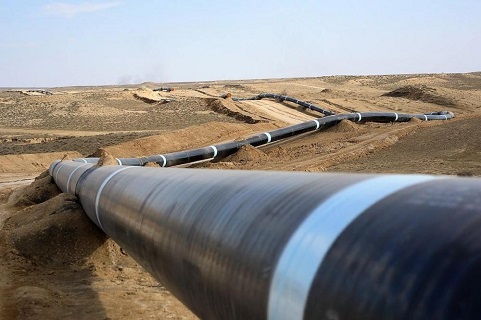In an interview with the website of the Strategic Council on Foreign Relations, Dr. Mojtaba Norouzi referred to Afghanistan’s decision to send a delegation to Turkmenistan to negotiate the issues related to the implementation of the “TAPI” pipeline project, including gas prices, as well as the Taliban industrial township and noted: Challenges so far have faced implementation of the TAPI project with a dead end; issues related to the security of investment in Afghanistan and the uncertainty of whether the country’s rulers can guarantee security of the pipeline have been among the most important challenges.
Challenges facing implementation of “TAPI” project
He added: Although such challenge also exists in Pakistan; none of the rulers of Afghanistan have been able to convince other countries that they can provide the security of the pipeline and show that this large investment can lead to sustainable results.
The expert on Afghanistan affairs pointed to the many differences between India and Pakistan and said: TAPI pipeline project will be economically meaningful when it can reach India; but India’s mistrust of Pakistan and Islamabad’s fear of New Delhi due to the consequences of India’s access to cheaper energy and being on the path of further development is among the main challenges of the project, which has kept this project at a standstill until today. This is a major issue in international relations, the management of which is naturally considered beyond the Taliban’s ability.
Norouzi continued: Despite all the slogans raised so far and the repeated talk on its operationalization, the necessary trust has not yet been established between the four parties of the project, and this lack of trust has disrupted the investment process.
Regarding the consequences of the implementation of the project, he noted: What was thought to act as a catalyst for this project to be finally operational was the pressure of external forces. There was this assessment that during the period of the US presence in Afghanistan, due to the policy and grand strategy that it pursues in the region, it will seek to remove the Islamic Republic of Iran from the transit routes of goods and energy and speed up implementation of the project, but at that stage Also, the project was not implemented and the United States could not accelerate it either.
Recalling that the cost of completing the TAPI pipeline project is estimated at 10 billion dollars, the expert added: Now that external powers are not paying attention to this issue, it is more difficult to progress the project than before.
Furthermore, Norouzi addressed the security issues and challenges of Afghanistan and referring to the statements of the Taliban officials who stated that they are looking for the creation of a special security unit with the aim of providing security for the TAPI project, he added: Considering the development of insecurities that have occurred in recent days by “ISIS” as the main rival of the Taliban in Afghanistan, it seems that there is no necessary trust from other players, including Turkmenistan, regarding the operationalization of the project.
Saying that Afghanistan has repeatedly talked about starting construction of the project but its construction has not started yet, he reminded: Basically, first of all, it is important to provide the necessary trust for the ability to create security, and according to the practical measures of the parties, it seems that other main players did not believe some claims.
The analyst of Afghanistan affairs pointed to the Taliban’s attempt to make the implementation of the project conditional on the political recognition of their government and emphasized: The Taliban is not in a position to set conditions for the implementation of the project and do not have the upper hand to set conditions for their recognition. More than other parties, the Taliban needs financial income acquired from implementation of the “TAPI” project.
Pakistan does not have a positive attitude about TAPI
Pointing to the many problems that Pakistan is facing in maintaining security of the TAPI pipeline project, regarding the possibility of cooperation between Pakistan and Afghanistan to make it operational, Norouzi said: The problem on the Pakistani side has many complications and the TAPI project, under such circumstances, cannot overcome those issues and push the country to work directly and honestly with the Taliban. The factors affecting the decision-making and orientation of implementation of the “TAPI” pipeline for Pakistan are different compared to those for Afghanistan, and this project is not worth much for Pakistan to change its macro strategies for it.
According to the expert on Afghanistan affairs, Pakistan does not have a positive view of extending the project to India, and because of the threats it feels from that point, it is not very willing to cooperate with the Taliban in this field.
Norouzi continued: Before this, the Asian Development Bank had stopped financing the project of transferring Turkmenistan’s gas through Afghanistan to Pakistan and India due to non-recognition of the Taliban. Under the current situation, implementation of the project will definitely help to develop the legitimacy of the Taliban at the regional and international level.
He added: The Taliban want more than anything else to show the conditions in such a way that regional players trust them and their position is so established that countries are willing to implement large projects with long-term joint investments with them. In fact, they tend to gain credit by using such projects.
An Analysis on Military Confrontation between Iran and the Zionist Regime
Strategic Council Online – Interview: An expert on West Asian issues said: In the last hours of April 14, the Islamic Republic of Iran launched a missile and drone attack against the Occupied Territories, which continued until the next morning. This was despite Iran’s prior notification to some regional and transregional countries about the certainty of our country’s response and military action; America and Israel could not prevent this attack.










0 Comments